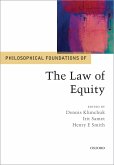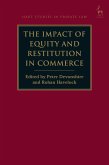This book sets out to defend the claim that Equity ought to remain a separate body of law; the temptation to iron-out the differences between neighbouring doctrines on the two sides of the Equity/Common Law divide should, in most cases, be resisted. The theoretical part of the book is argues that the characteristics of Equity, namely, appeal to conscience, flexibility, retroactivity and the use of morally-freighted jargon, are essential for the implementation of a legal ideal that has been neglected by the Common Law: ?Accountability Correspondence?. According to this fundamental legal ideal, liability imposed by legal rules should correspond to the pattern of moral duty in the circumstances to which the rules apply. Equity promotes this ideal in the fields of property and obligations by disallowing parties to exploit the rule-like nature of Common Law norms in a way that breaches their moral duty to the other party. By reference to various equitable doctrines, it is argued that the faults identified by critics of Equity, especially from the perspective of the Rule of Law, are highly exaggerated, and that the criticism often reflects a political belief in the supremacy of individualism and free market over empathy and social justice. The theoretical part is followed by three chapters, each dedicated to an in-depth analysis of the equitable doctrines of fiduciary duties, proprietary estoppel, and clean hands. For each doctrine, it is shown how their equitable characteristics are indispensable for achieving their social, ethical and economic purpose.
Dieser Download kann aus rechtlichen Gründen nur mit Rechnungsadresse in A, B, BG, CY, CZ, D, DK, EW, E, FIN, F, GR, HR, H, IRL, I, LT, L, LR, M, NL, PL, P, R, S, SLO, SK ausgeliefert werden.









